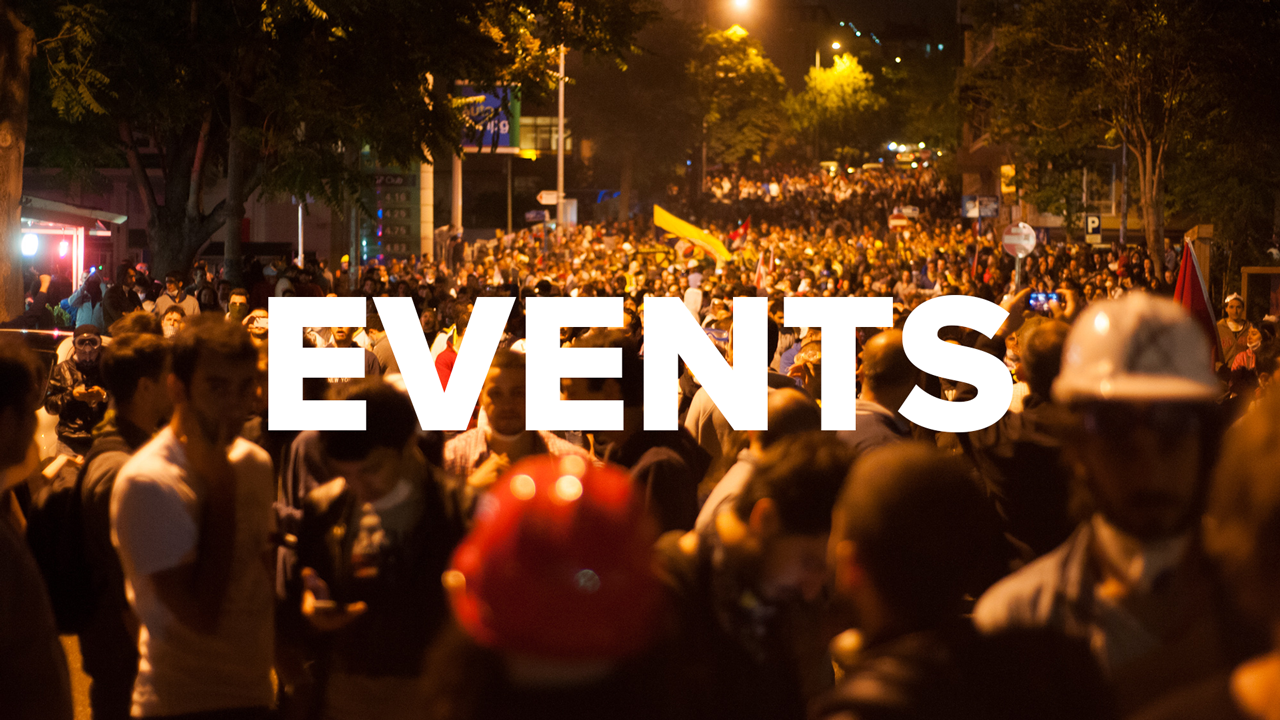Co-Investigators: Jon Harris, Manling Li, Theo Lipeles, Nasir Pauldon-Collins, Ananya Subburathinam
Welcome to EventFinder!
Events have been a great part of human culture, from operas to sports games and everything in between. In our current day and age, the growth of technology and the internet has made it easier to find and schedule events online. However, there are many clients for finding and scheduling events nowadays, and it can be a considerable effort for someone to search all of them for what they want, especially when some of the sources might have incorrect information. Thus, the goal of our project is to provide an EventFinder agent that can gather and consolidate information about events (specifically Sporting events, concerts, and plays) occurring within a user-specified time and location within the Capital Region.
Developers
Jon Harris
Manling Li
Theo Lipeles
Nasir Pauldon-Collins
Ananya Subburathinam
Overview
The targeted users of this system are people who wish to find events to include in their plans over the next few months, but they want to do so quickly and with minimal hassle. The usefulness of this system to the targeted users and stakeholders lies in the ease with which they can find this comprehensive list of all the events they might be interested in, with a single question to the agent.
The user will go to the website using a browser which can render and display the system’s interface and enter in their question. Two example questions are as follows: “What rock concerts take place in Saratoga Springs NY during September 2018?” and “What sports events and rock concerts take place in Albany NY in November 2018?” Both questions explicitly state the type of event to filter by, the location (city and state) and the time (month and year) during which the event must take place. To answer these queries, the agent must make use of the new ontology, which will help it know that the user is looking for a subtype of ‘events’ called ‘concert’ which has subtype ‘rock’ with location and time property values as ‘Saratoga Springs NY’ and ‘September 2018’ respectively, or, know that that the user is looking for a subtype of ‘events’ called ‘sports’ and retrieve all events of type sport with specified properties. On top of that, the agent will also use the previous events the user has already attended in order to make inferences about the user’s preferences. This allows the agent to give personalized recommendations to the user about events that are similar to ones they have already attended. For example, for question 1 above, the agent can check the user’s history to recommend the top ten events that the user is more likely to enjoy out of all the events matching their query. In this case, the agent should be able to infer from the fact that the user has attended a number of concerts held at ‘Times Union Center’ at 7PM, that the user is more likely to prefer events at the same venue and time. From there, the agent will look through the full list of matched events to find a subset based on its inference. From this subset, the top ten events are found using a recommendation score.
As a response, the agent uses the ontology and a database compliant with this ontology pre-populated with accurate information about all the types of events in the use case to generate and display a list of all events that fit the user’s criteria and that are similar to events the user has already attended, sortable by time, location, or event type. Each of the items in this list will be clickable, and upon clicking on one of the items, the details of the event (properties and values) will be displayed to them. As an example, clicking on ‘RPI vs UAlbany Hockey’ event listing will allow the user to see information such as time (nth November, 2018 at 17:00), location (RPI Stadium, Troy NY), and participants (RPI Hockey team, UAlbany Hockey team). This will leave the user with all the information they need to plan their event related activities.
Significance
- Reduces the time and effort required for users to find and schedule events
- Fills a gap in existing semantic representation of event ontologies
Demonstration and Queries
A demonstration for this agent based on Protege and SPARQL queries is available here. We show examples of how our ontology was evaluated on competency questions, the portions of our ontology that enable us to answer these questions - their concept diagrams and Protege representations, the SPARQL queries that reflect these questions, and sample results to the queries.
Getting Involved
As the number and varieties of events grow, so must the capabilities of event search services and agents. In the future we would like to incorporate many more features that make the search for events more user-friendly and exhaustive than ever before! We welcome collaboration and efforts to improve this project beyond its current version. Please visit our Getting Involved page to find out how you can join our effort towards this goal.
This ontology, and the other interesting ontology projects created as part of the Ontology Engineering Fall 2018 course can be found here.
Acknowledgements
This work is supported by Prof. Deborah L. McGuinness, Ms. Elisa Kendall, Jim McCusker, and Rebecca Cowan for the class Ontologies Fall 2018 in Rensselaer Polytechnic Institute (RPI).
This work was conducted using the Protégé resource, which is supported by grant GM10331601 from the National Institute of General Medical Sciences of the United States National Institutes of Health.
Image source: http://fis-cal.com/events/

